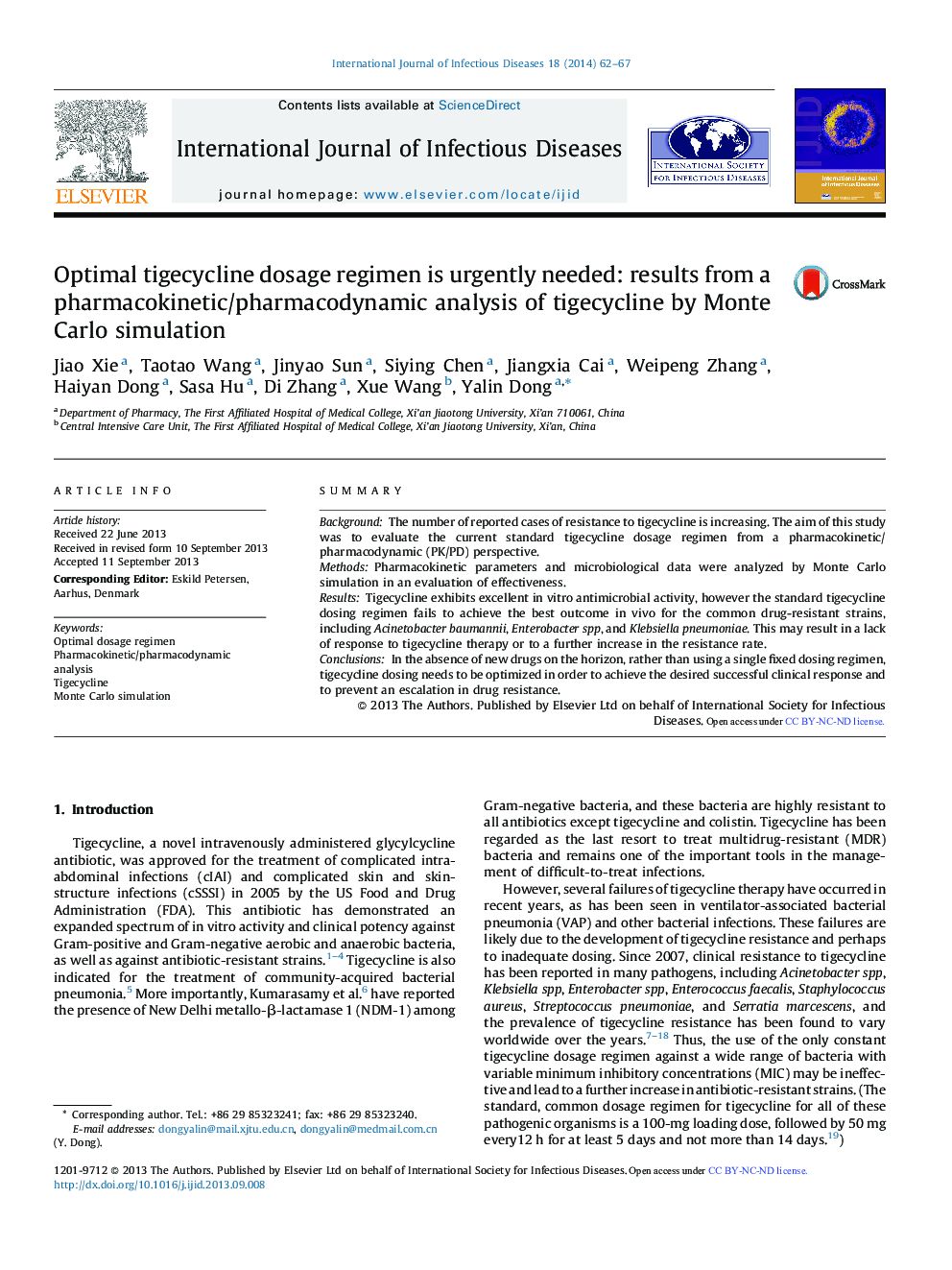| Article ID | Journal | Published Year | Pages | File Type |
|---|---|---|---|---|
| 3362820 | International Journal of Infectious Diseases | 2014 | 6 Pages |
SummaryBackgroundThe number of reported cases of resistance to tigecycline is increasing. The aim of this study was to evaluate the current standard tigecycline dosage regimen from a pharmacokinetic/pharmacodynamic (PK/PD) perspective.MethodsPharmacokinetic parameters and microbiological data were analyzed by Monte Carlo simulation in an evaluation of effectiveness.ResultsTigecycline exhibits excellent in vitro antimicrobial activity, however the standard tigecycline dosing regimen fails to achieve the best outcome in vivo for the common drug-resistant strains, including Acinetobacter baumannii, Enterobacter spp, and Klebsiella pneumoniae. This may result in a lack of response to tigecycline therapy or to a further increase in the resistance rate.ConclusionsIn the absence of new drugs on the horizon, rather than using a single fixed dosing regimen, tigecycline dosing needs to be optimized in order to achieve the desired successful clinical response and to prevent an escalation in drug resistance.
